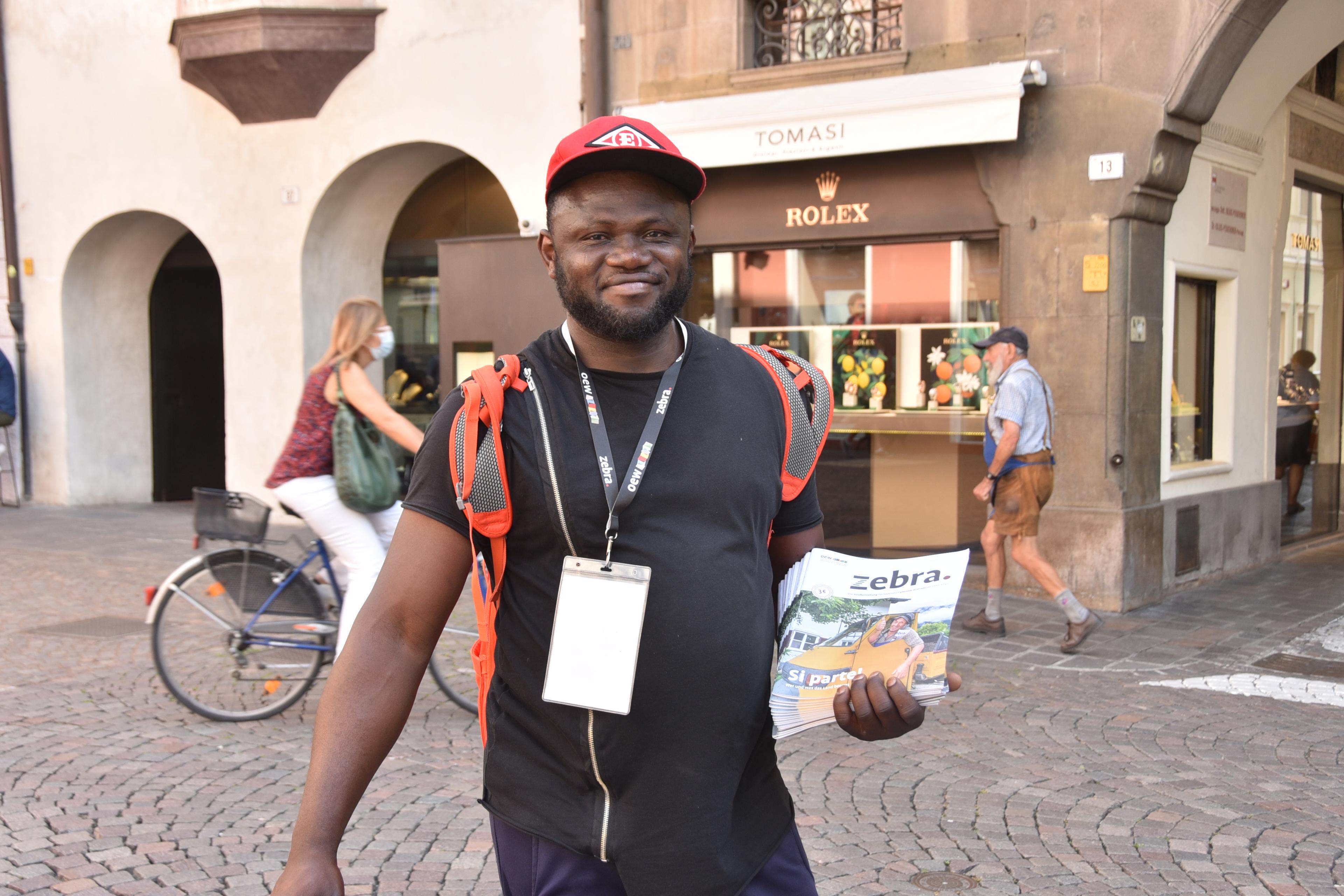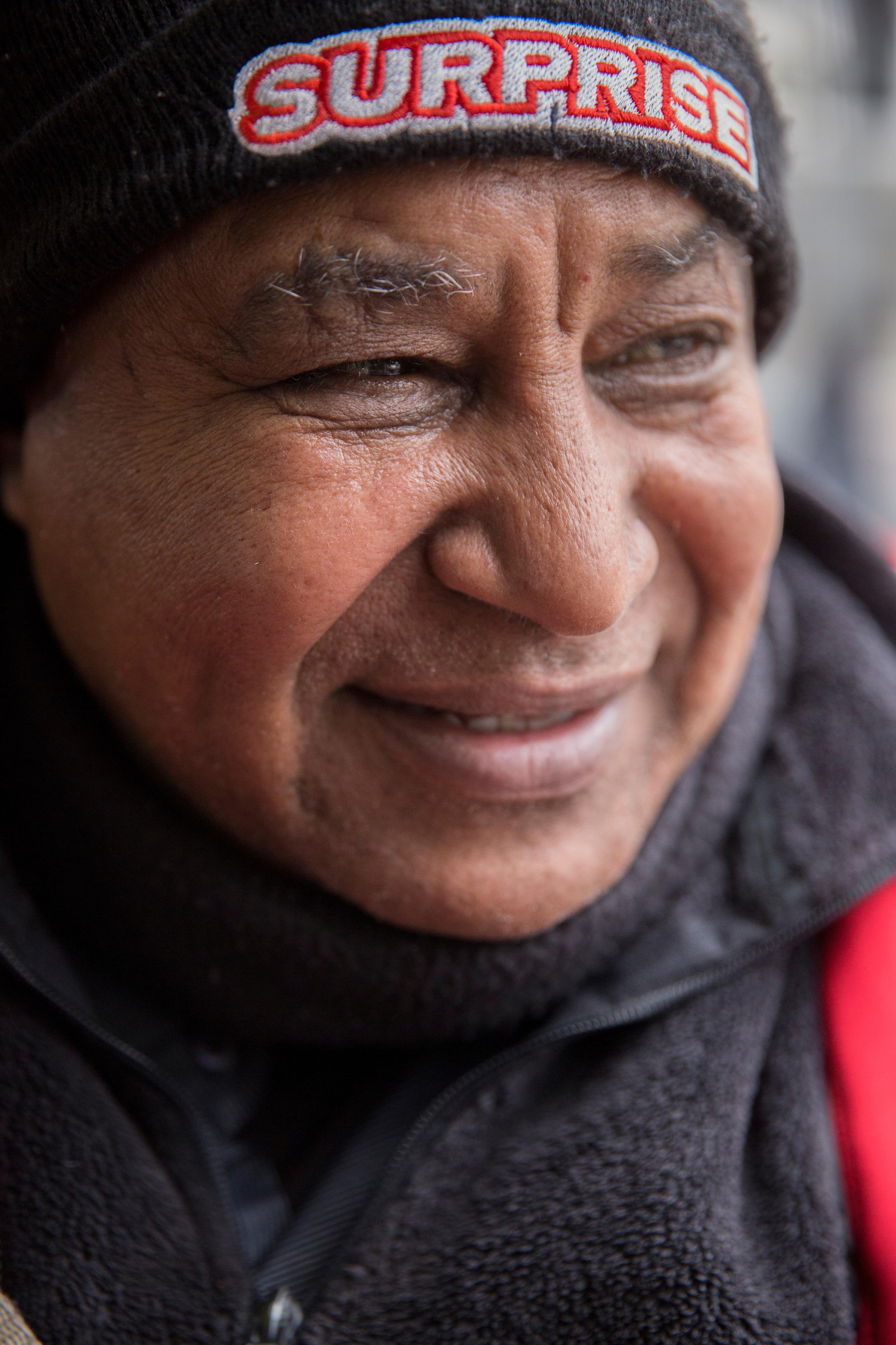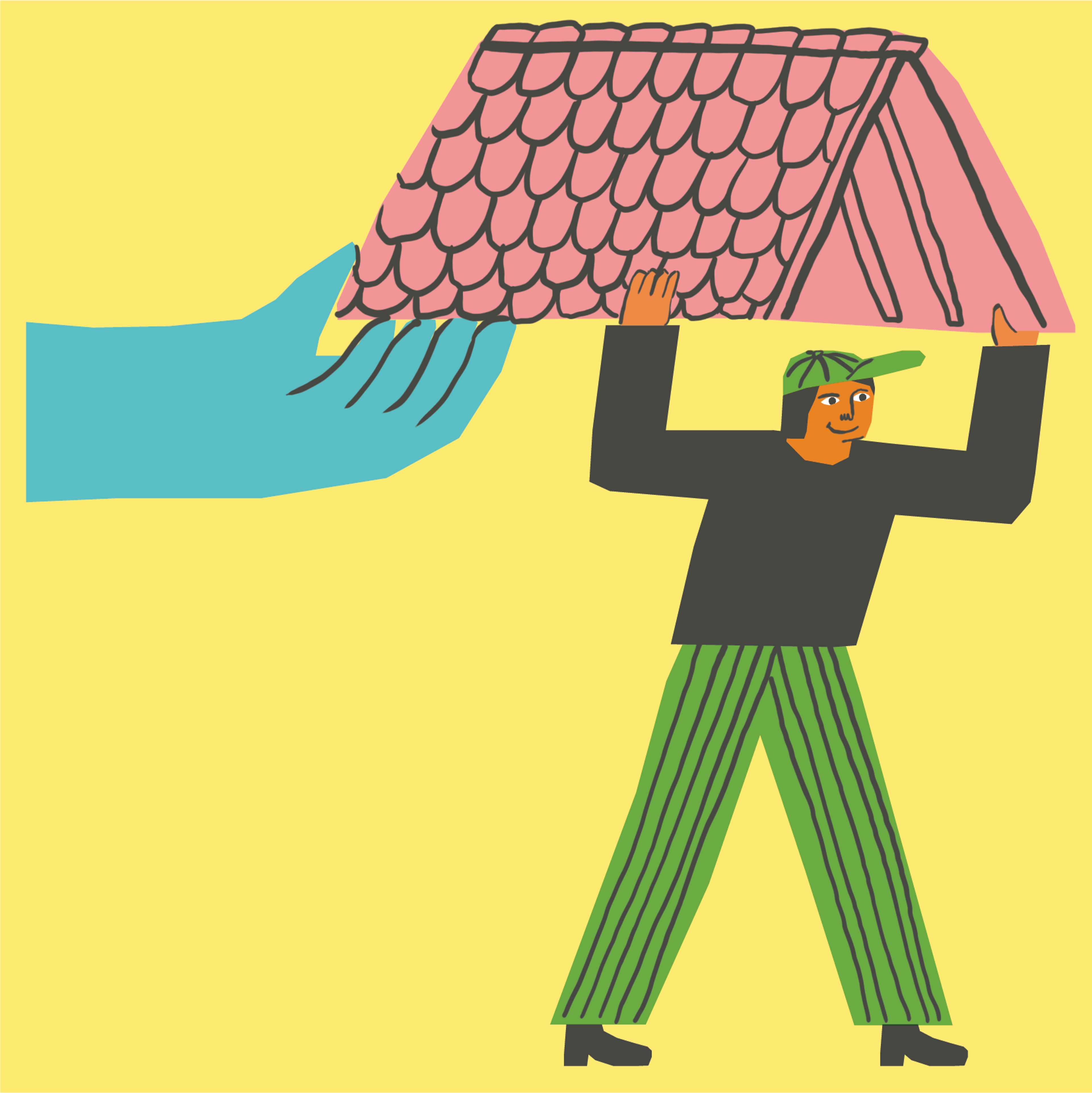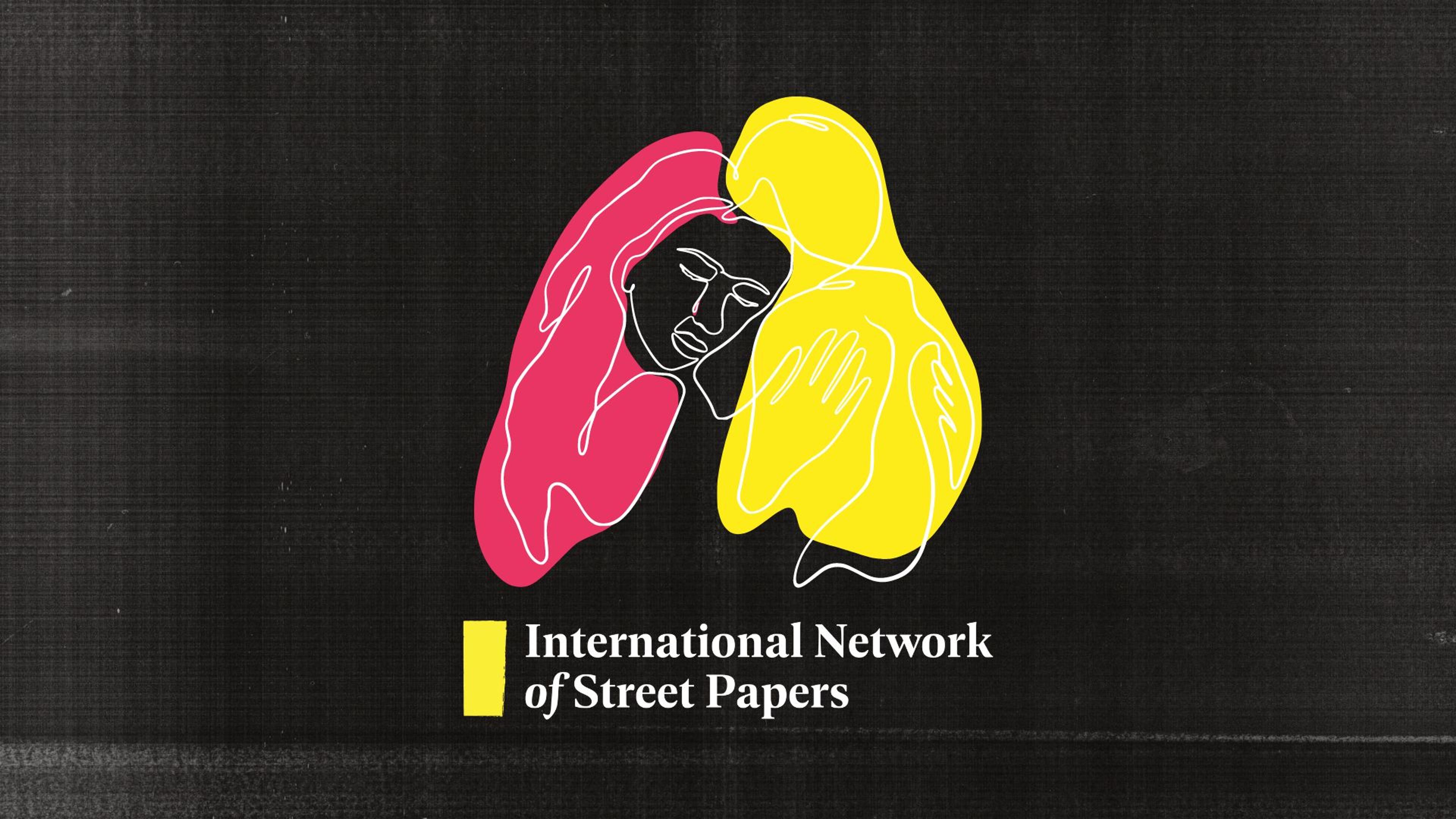As the refugee crisis worsens, street papers offer a path to stability and a hopeful future

zebra. vendor Paul Nosaghare Igbeque. Credit: Anna Mayr.
By Tony Inglis
- News
Street papers have found themselves increasingly to be at the centre of the refugee crisis. Higher numbers of people selling street papers across different parts of the world have fled from their home countries due to poverty, persecution and conflict. Not only do street papers have the ability to platform their voices and stories, but they also offer a stable income when a place in the mainstream job market may seem out of reach. Their support beyond simply selling the magazine – assisting in applying for documentation and permits, looking for a new place to live, and language classes – means a pathway to integration into what is sometimes a new and unfamiliar society. Ahead of World Refugee Day on 20 June, INSP and its member street papers are helping some refugees – who now work selling street papers – to tell their story.
The movement of people is at the forefront of public consciousness due to the mass migration caused by the Russian invasion of Ukraine earlier this year, with refugees at first crossing at the nearest borders, and later arriving further afield. But the conflict in eastern Europe is only the latest indication of the continuing refugee crisis across the world, with strife and war forcing people from their surroundings in Yemen, Afghanistan, Syria, parts of Latin America and north and west Africa, and other areas of the Middle East. This is a global issue. And it isn’t just conflict that gives people no other option but to abandon their home: poverty, persecution, crackdowns on certain values and principles, and climate change, to name just a few, can all be factors in people seeking a better life in a new place. Upon arriving in a strange and unfamiliar environment, refugees are often faced with uncertain next steps and a barrier of bureaucracy blocking the route towards becoming recognised by the state which the now want to call home.
As a result of this journey, street papers have found themselves increasingly to be at the centre of the refugee crisis. Higher numbers of people selling street papers across different parts of the world have fled from their home countries. Not only do street papers have the ability to platform their voices and stories, but they also offer a stable income when a place in the mainstream job market may seem out of reach, allowing them to sell the publications on the way to finding a sure footing. Their support beyond simply selling the magazine – assisting in applying for documentation and permits, looking for a new place to live, and language classes – means a pathway to integration into this new society.
Ahead of World Refugee Day on 20 June, INSP and its member street papers are helping some refugees – who now work selling street papers – to tell their story, explaining where they’ve come from, why they left, and what it is about being involved with street papers that has made the transition easier.
“The street paper gave me a new hope”
44-year-old Paul Nosaghare Igbeque (pictured above), originally from Nigeria, now works selling the street paper zebra. in Bolzano in northern Italy. 80 per cent of zebra.’s vendors are from Nigeria.
“I was born in Igueben, a small town close to Benin City,” says Paul. “After I graduated from secondary school I started working in a restaurant as a dishwasher in order to earn the money to live and pay for university. Life in Nigeria was very hard and dangerous. Growing up I faced a lot of violence. I was the victim of police brutality twice without having committed any crime. That is why I decided to move to Kaduna, in the north of the country. But I’m Christian and that area was very dangerous for me due to the prevalence of religious extremist terrorist groups and constant killing and kidnapping.
“I had to leave my country in order to survive. It was 2016. I crossed Niger and arrived in Libya. I spent two months in detention. I had to ask for help from my mother, who paid for my release. Four days later I was imprisoned again, beaten badly, and left in a pool of blood. I still have the wounds on my head. God saved my life.
“Even in Libya my life was at risk and the only way to survive was by reaching Europe by boat. When I saw the sea, I was very afraid. Three days before my departure a boat sank and 36 people died. I sailed with many other people and after a few hours we were in trouble: our boat had started taking in water and we had no more food or drinking water. I remember that the blue of the water was very intense. I drank it and it was so salty.
“We sailed for one day before being rescued. The people on the ship were shouting at us to be calm, stay still, and not to swing our boat. We were thrown life jackets and with a rope we were hoisted aboard. I was condemned to death, but once again, with the love of God, I did it. When I was in Libya there was a song that I used to sing – “This will not happen again” – which gave me strength. I will never forget that song. I will keep singing it forever.
I had to leave my country in order to survive.
“I arrived in Sicily, then I started a long trip by bus to reach Bolzano. I travelled for two days, afraid that they would deport me out of Europe. After some weeks, I tried to move to Germany, but I was registered as an asylum seeker in Italy and when the police checked my fingerprints I was sent back to Italy. I was in Bolzano once again. I did not have a place to stay and I lived on the street for six months before finding shelter in a camp. I’ve been living in there for four years with many other people, but that is ok for me. I always try to look on the bright side of things.
“In 2019, I started selling the street paper zebra. Sometimes it can be difficult to stand outside in the cold for many hours, but I always say that zebra. gave me a new hope. In a very difficult moment of my life, it helped me to look forward to the future. I was living in the camp with nothing to do, but by selling zebra. I had the chance to be active again. Over the years, I have done several courses, volunteer activities, and I worked in agriculture, tourism, cleaning, and in a garden centre. At the moment, I am waiting for the court to rule on my application for asylum. The hearing took place a year ago and I am still waiting for the result.”
A new life
Negussie Weldai is one of a cohort of vendors at the Swiss street paper Surprise that identifies as a refugee.
“After fleeing the regime in Eritrea, I came to Switzerland in 2010,” says 63-year-old Negussie. “After being here for five months, I started selling the street magazine Surprise. It was an opportunity to earn some money and start my new life here. Being able to buy the things I needed made me feel like a normal person again. Meeting people and talking to customers helped me to learn German faster and connect to Swiss people.

Surprise vendor Negussie Weldai. Credit Ruben Hollinger.
Meeting people and talking to customers helped me to learn German faster and connect to Swiss people.
“The social workers from Surprise helped me with several things, like getting legal status and finding a rental place to live in. Since 2016, I’ve also had a part time job at the front desk of the Surprise office in Bern. My wife also works as a vendor. Our income now earns us a living and has prevented us from having to apply for government support. For that we are thankful and keep working hard.”
“It has got me this far, and it will take me even further”
Friday Akpan arrived in Austria from Italy in September 2014. Like zebra. vendor Paul, he too had come from Nigeria. He started selling the street paper Apropos in Salzburg in 2015. It’s a date that he remembers well. He was thrilled to be accepted as a vendor; it resolved the pressing question of what he might do and where he might work. Working as a vendor got the ball rolling from Friday’s arrival as a refugee to his eventual acceptance as an asylum seeker.
Friday’s work as an Apropos vendor enables him to pay for his rent and household expenses. But selling Apropos on the street is not just a means of earning a bit extra; he has a personal connection with his customers. This connection is often much stronger than a purely professional one, though Friday is most keen to keep selling apart from his private life. “I always give the exact change,” he stresses. “If the paper is three euros and someone pays with a five euro note, they always get the two euros change. That way, the business side is taken care of. They often give me back the two euros as a tip. But that’s another matter.”

Friday Akpan thinks getting a job as a seller of Apropos was fate. Credit: Foto Flausen.
“Life is all about give and take,” says Friday. “If you are nice to people, then they will be nice to you.” Since coming to Austria, it is recommendations from others that have helped him to progress and move forward: he is known to be a good man. His affable personality and readiness to help have been his trump cards in getting over the hurdles faced by someone with asylum status. He hopes to use these attributes in the future to ensure the right to remain for his youngest son.
“I’m living from day to day,” says Friday. “It’s got me this far, and it will take me even further.”
With thanks to the social work, vendor support and editorial staff at zebra., Megaphone, Surprise and Apropos.
Courtesy of the International Network of Street Papers


